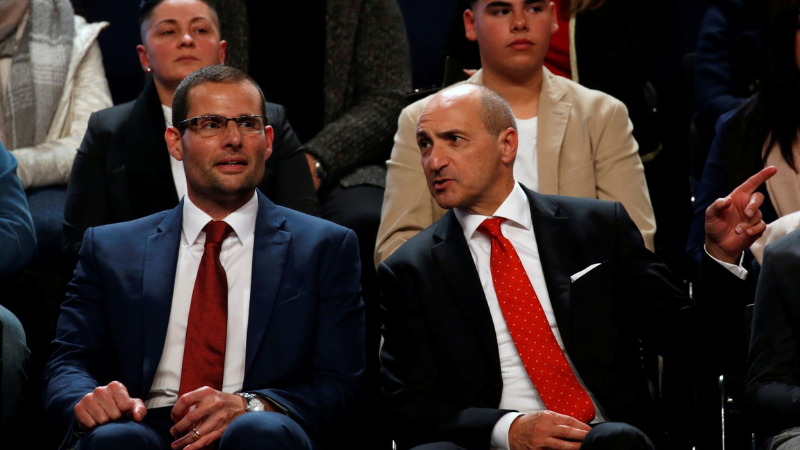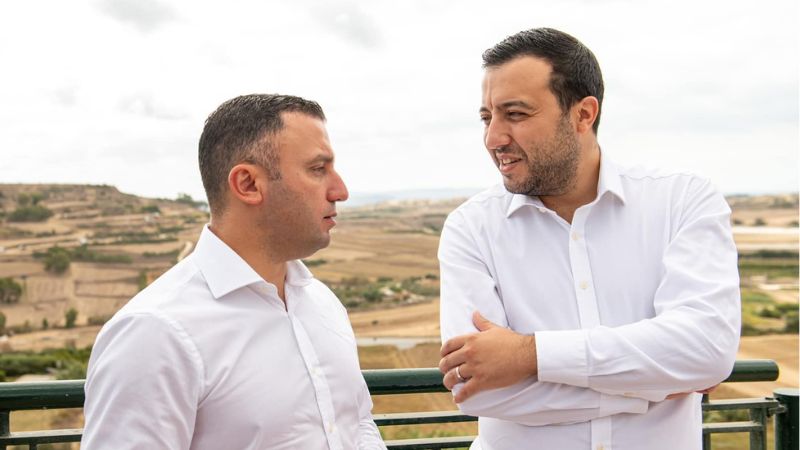Eagle-eyed observers and those who monitor our politicians’ social media shenanigans, will have noticed an uptick in posts related to an electoral campaign.
Some politicians are organising events, others are describing campaign home visits, while others still are simply plastering their campaign logo on “borrowed” photos of Afghan women for extra effect.
The most notable announcement, however, comes from Deputy Prime Minister Chris Fearne who, while speaking to One Radio, said he plans to contest the next general election on the 3rd and 4th districts.
Why would they do this? After all, Prime Minister Robert Abela has been particularly reluctant to set a date for the forthcoming general elections which are due next year, even going as far as to say that he will not call a general election before the Labour Party’s electoral manifesto is fully implemented.
If that last statement sounds like hogwash, that is because it is – those who have been carefully following events will have noticed that government and Labour party officials have now been “campaigning” for quite a while.
With a little help from surveys…
In Malta, readers are treated to electoral surveys on a monthly or bi-monthly basis. One of the most recent voter intention surveys was commissioned and published by The Times of Malta and predicted that if a general election were to be held now, the Labour Party would win by more than 50,000 votes, securing 57% of the electorate’s support.
The implications of this propensity for frequent electoral surveys are quite significant and go beyond the pithy retorts by disgraced former prime ministers to their interviewers or the bandying of percentages by staunch party supporters as an answer to criticism.
Surveys, especially those that deal with opinions on complex issues, have their limitations, and so do the methodologies used to design, administer and analyse election surveys. An even more complex issue is the effect that voter intention surveys have on the voters themselves.
In 2014, a study by David Rothschild and Neil Malhotra found that polling data helped voters get the information they need in order to make decisions. In their study, the researchers wanted to explore what is known as the ‘bandwagon effect’ in the political domain. The ‘bandwagon effect’ is when people change their opinion to conform to a majority.
During their study, the researchers randomly assigned people to receive information about different levels of support for three public policies and found that public opinion expressed through polls significantly impacted individual attitudes, even though the size of the effect depended on the type of issue.
And because the opinion of the majority has the potential to sway individual decisions, polls and surveys risk becoming a self-fulfilling prophecy with surveys not so much measuring opinions as much as creating them. And that is without considering the outsized role social media now plays in the dissemination of a preferred result to a preferred group.
To be clear, this is not a criticism of statistical surveys or opinion polls, their methodologies or their efficacy in gauging trends, but is more of a consideration of some aspects of surveys that rarely, if ever, get mentioned in public debate.
Given the frequency with which voter surveys are published in Malta, one may be forgiven for thinking that they have now become part of the apparatus of political strategy rather than a mere commentary on it. At best, surveys quantify a sentiment or intention; however partial and at worst, they are used by politicians to proclaim that “the people” want whatever it is they are selling.
Who’s campaigning?
The public might rely on surveys to help them form an opinion but make no mistake, our savvy politicians are certainly not taking survey results for granted. Whopping percentages might make for rhetoric and clever comebacks but behind closed doors, few would make the mistake of treating polls (whether on voting intentions or issues) as a final verdict.
This is why government officials may say that they’re not campaigning but have continued to dole out job after job in the public sector prompting the Malta Employers Association to warn of talent being poached from the private sector.
No one’s “campaigning” in a formal sense, but we continue to see three Gozitan ministers jostling to secure their parliamentary positions by creating a series of ‘initiatives’. It is why the public procurement process has been completely subverted to include direct orders to preferred companies running into tens of millions of euros.
It is why we see the same businessmen being awarded tender after tender and it is why we continue to see taxpayer’s money squandered on half-baked or incomplete projects but not before they were launched with much fanfare.
It’s not that government and Labour party officials haven’t started campaigning, it’s that they never really stopped.













Excellent point on surveys having ability to sway undecided voters. This is particularly relevant when the choice of politicians is so dismal.
The main figures coming out of surveys, are those for ‘undecided and won’t vote’.
Otherwise, it is an open secret that respondents have developed the culture of purposely faking their responses.
It would be interesting to start surveying preferences for same party voters contesting in the same districts.
GAHANs dictate what would be the electoral result
This article has clearly depicted the true picture of what the parlamentarians on the government side have and are continuously up in preparation for the up-coming general election which seems to be on the doorstep